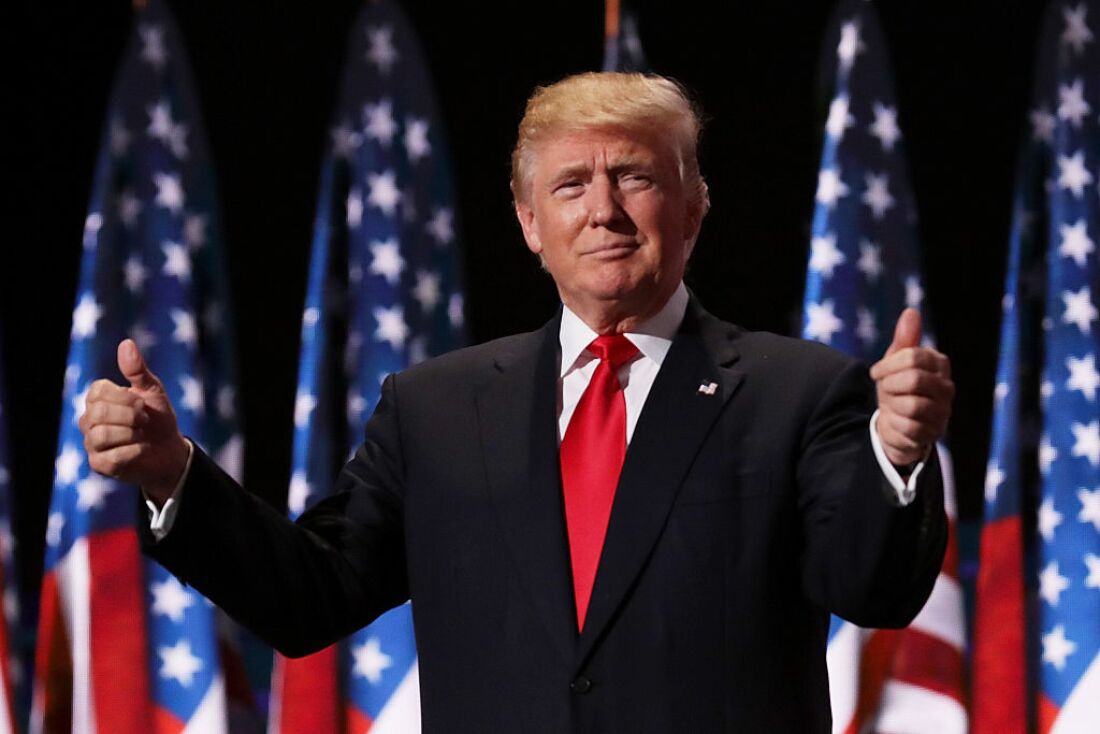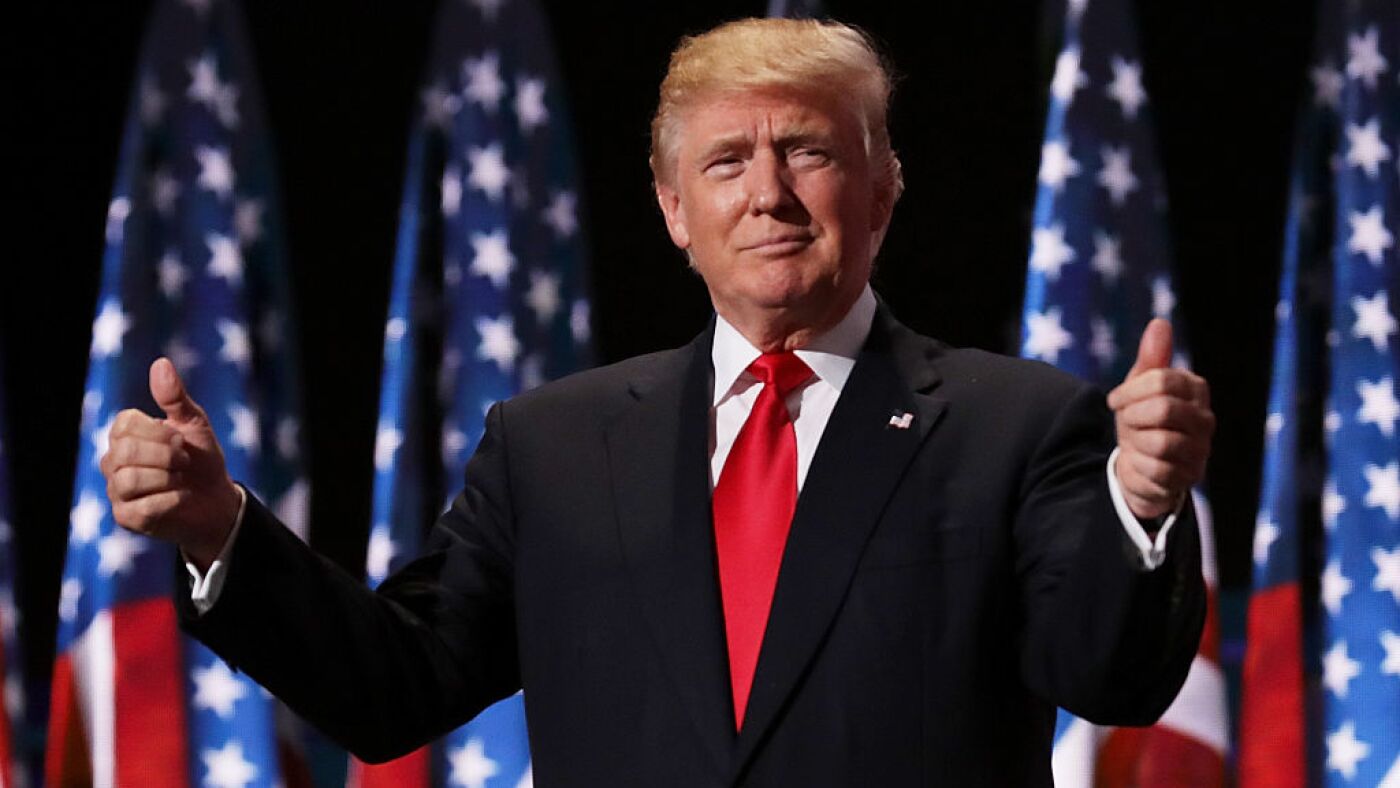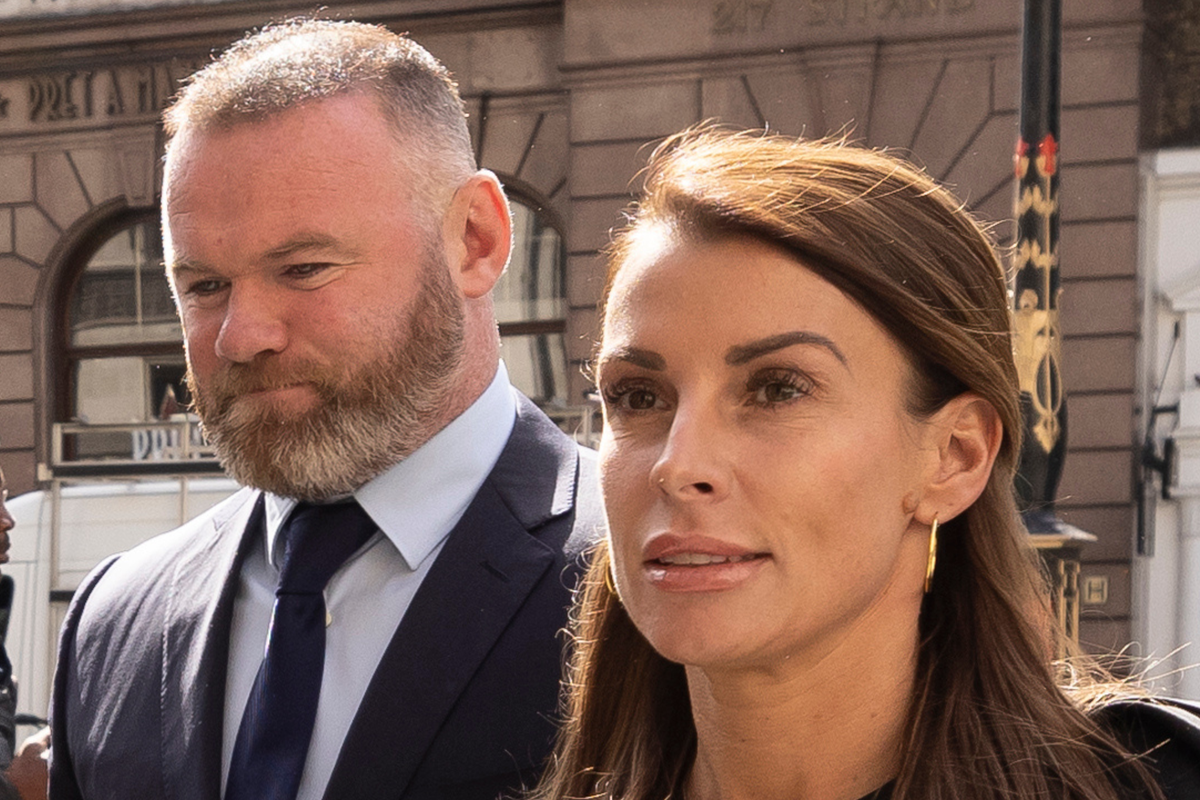
The U.S. Supreme Court has found that former President Trump is partially immune from prosecution.
Chip Somodevilla/Getty Images
hide caption
toggle caption
Chip Somodevilla/Getty Images
The U.S. Supreme Court, in a 6-3 decision along ideological lines, ruled that a former president has absolute immunity for his core constitutional powers — and is entitled to a presumption of immunity for his official acts, but lacks immunity for unofficial acts. But at the same time, the court sent the case back to the trial judge to determine which, if any of Trump’s actions, were part of his official duties and thus were protected from prosecution.
That part of the court’s decision likely ensures that the case against Trump won’t be tried before the election, and then only if he is not reelected. If he is reelected, Trump could order the Justice Department to drop the charges against him, or he might try to pardon himself in the two pending federal cases.
Chief Justice John Roberts wrote the court’s decision, joined by his fellow conservatives. Dissenting were the three liberals, Justices Elena Kagan, Sonia Sotomayor and Ketanji Brown Jackson.
Roberts acknowledged that the case was unprecedented.
“No court has thus far considered how to distinguish between official and unofficial acts,” he wrote, while chiding the lower courts for rendering “their decisions on a highly expedited basis.” He said the lower courts “did not analyze the conduct alleged in the indictment to decide which of it should be categorized as official and which unofficial.”
Roberts wrote that “Trump asserts a far broader immunity than the limited one we have recognized,” but the opinion also undermined some of the key charges against the former president.
“Certain allegations–such as those involving Trump’s discussions with the Acting Attorney General–are readily categorized in light of the nature of the President’s official relationship to the office held by that individual,” he wrote. In other words, “Trump is … absolutely immune from prosecution for the alleged conduct involving his discussions with Justice Department officials.”
Monday’s decision to send the case back to trial Judge Tanya Chutkan all but guarantees that there will be no Trump trial on the election interference charges for months. Even before the immunity case, Judge Chutkan indicated that trial preparations would likely take three months. Now, she will also have to decide which of the charges in the Trump indictment should remain and which involve official acts that under the Supreme Court ruling are protected from prosecution.
In her dissent, Justice Sonia Sotomayor wrote that the majority “in effect, completely insulate[s] Presidents from criminal liability.”
“Today’s decision to grant former Presidents criminal immunity reshapes the institution of the Presidency. It makes a mockery of the principle, foundational to our Constitution and system of Government, that no man is above the law,” she wrote. “Relying on little more than its own misguided wisdom about the need for “bold and unhesitating action” by the President, … the Court gives former President Trump all the immunity he asked for and more.”
Even after Judge Chutkan separates the constitutional wheat from the chaff, Trump could seek further delays, as immunity questions are among the very few that may be appealed prior to trial.
Monday’s Supreme Court decision came months after the court agreed to hear the case Feb. 28 and scheduled arguments for two months later. Court critics have noted that the justices could have considered the case as early as in December, when Justice Department special counsel Jack Smith unsuccessfully sought review of the same questions later put forward by Trump.
All of this stands in stark contrast to the way the court has handled other presidential power cases. In 1974 the justices ruled against President Nixon just 16 days after hearing oral arguments. The vote was 8-0, with Justice William Rehnquist recusing himself because of his close ties to some of the officials accused of wrongdoing in the case. And this year the court took less than a month to rule unanimously that states could not bar Trump from the ballot.






